On December 19, 2023, the Colorado Supreme Court issued a landmark decision that sent shockwaves through the American political landscape. In a 4-3 ruling, the court declared former President Donald Trump ineligible to hold office again under the U.S. Constitution’s Fourteenth Amendment and subsequently removed him from the state’s 2024 presidential primary ballot. This unprecedented act sets the stage for a monumental legal battle with potentially far-reaching consequences for the upcoming election and beyond.
Groundbreaking Decision:
- Uncharted Territory: This marks the first time in American history that a court has disqualified a presidential candidate based on the Fourteenth Amendment’s “insurrection clause.” This provision, enacted after the Civil War, states that anyone who has “engaged in insurrection or rebellion” against the United States is disqualified from holding any federal office.
- The January 6th Connection: The court’s decision stems from Trump’s actions surrounding the January 6th Capitol riot. The majority opinion concluded that Trump’s speeches and actions leading up to and during the attack constituted “incitement of an insurrection,” thus triggering the Fourteenth Amendment’s disqualification clause.
Contentious Interpretations:
- Dissent and Debate: The verdict was not unanimous, with three dissenting judges arguing that the Fourteenth Amendment was not intended to apply to presidential candidates and that Trump’s actions, however controversial, did not rise to the level of insurrection. This underscores the complexities of legal interpretations and the potential for ongoing legal challenges.
- Political Ramifications: The ruling instantly ignited the political arena. Trump and his supporters vehemently condemned the decision, calling it a politically motivated attack on his candidacy. Democrats, on the other hand, largely praised the court’s action, viewing it as a necessary safeguard against future threats to democracy.
Table of Contents
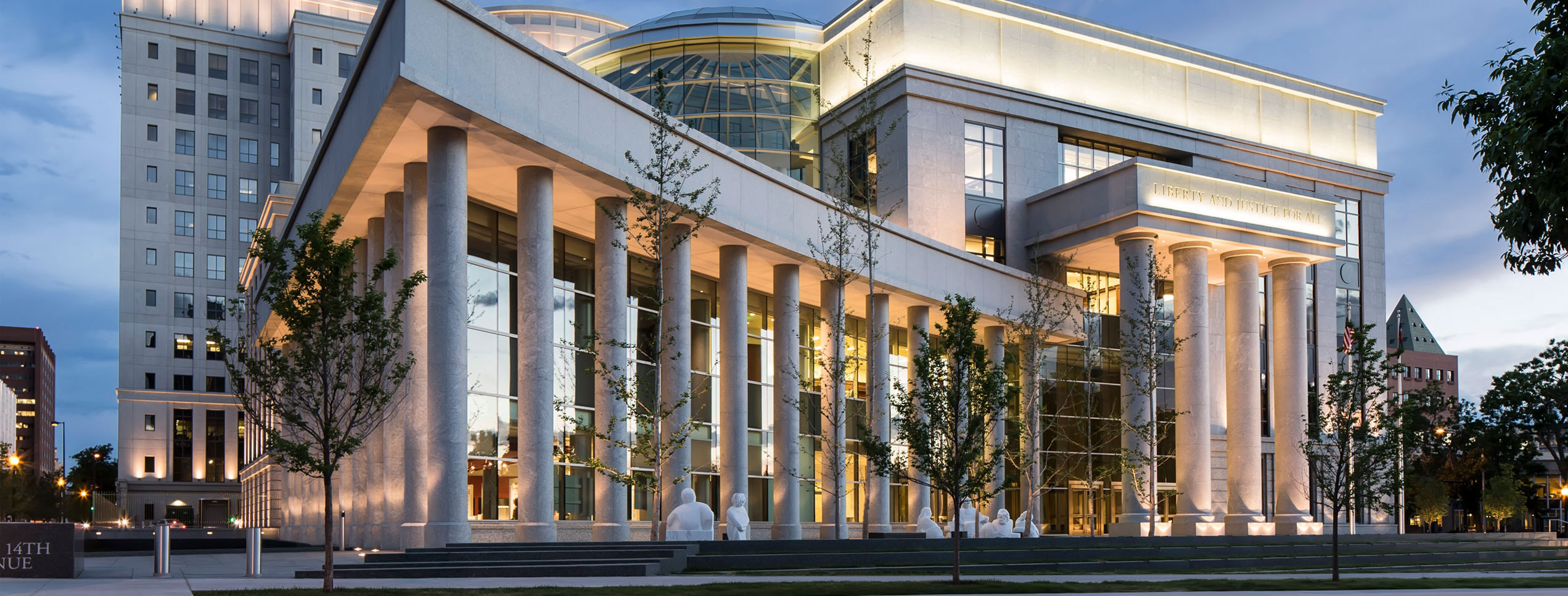
Uncertainty and Appeal
- The Road Ahead: The Colorado Supreme Court’s decision is likely to face appeals, potentially reaching the U.S. Supreme Court. This sets the stage for a prolonged legal battle that could ultimately determine Trump’s eligibility for the 2024 election and shape the interpretation of the Fourteenth Amendment for years to come.
- Impact on the Race: Regardless of the final outcome, the Colorado ruling has already injected significant uncertainty into the 2024 presidential race. It remains to be seen how this will affect voter behavior, campaign strategies, and the overall dynamics of the election.
Legal Basis: Navigating the Fourteenth Amendment’s Labyrinth
The Colorado Supreme Court’s decision against Trump hinges on a single, powerful clause within the Fourteenth Amendment: Section 3. This provision, a legacy of the post-Civil War era, stipulates that no person “who engaged in insurrection or rebellion against the United States” shall hold any federal office. The court’s interpretation of this clause and its application to Trump’s conduct on January 6th form the very foundation of its ruling.
Unpacking Section 3:
- A Barrier to Past Confederates: Enacted in 1868, Section 3 aimed to prevent individuals who supported the Confederacy from assuming positions of power within the government. Its original purpose focused on the disenfranchisement of former Confederate leaders but has never been invoked to bar a presidential candidate.
- Modern-Day Relevance: The court found this historical provision surprisingly relevant to contemporary events. They argued that the Fourteenth Amendment’s principles extend beyond literal rebellion and encompass attempts to “overthrow or supplant the lawful government through violent or lawless action.”
Interpreting “Insurrection”:
- Beyond the Literal Definition: The court’s majority opinion did not rely on a narrow, dictionary definition of “insurrection.” Instead, they adopted a broader interpretation that considers an act’s “objective dangerousness” and its potential to disrupt the constitutional order.
- Trump’s Actions Under the Microscope: Applying this broadened definition, the court analyzed Trump’s speeches and conduct before and during January 6th. They pointed to his repeated false claims of election fraud, his encouragement of supporters to “fight like hell,” and his failure to call off the mob even as violence unfolded. In their view, these actions constituted “incitement of an insurrection” that directly violated Section
Dissenting Voices:
- Historical Misapplication: The three dissenting judges disagreed with the majority’s interpretation, arguing that applying Section 3 to a presidential candidate marks a dangerous precedent. They contended that the provision was intended for individuals who actively participated in armed rebellion, not political speech, however controversial it may be.
- First Amendment Concerns: The dissenters also expressed concerns about potential infringements on free speech. They argued that the majority’s broad interpretation of “insurrection” could be used to stifle legitimate political discourse and dissent.
The legal basis for the Colorado Supreme Court’s decision lies in a complex interplay between historical context, interpretation of the Fourteenth Amendment, and specific applications to Trump’s actions. Understanding these intricate threads is crucial to grasping the rationale behind the ruling and its potential ramifications.
Impact and Implications: A Seismic Ripples Through the Political Landscape
The Colorado Supreme Court’s ruling against Trump has thrown the 2024 election into uncharted waters, unleashing a tidal wave of uncertainty and potential consequences. We now explore the immediate and long-term repercussions this decision might trigger.
Cracks in Trump’s Candidacy:
- Eligibility in Limbo: The immediate impact is undoubtedly on Trump’s presidential aspirations. As of now, he is effectively excluded from the Colorado primary ballot, a potentially crucial battleground state. While he can still run in other states, this setback casts a shadow over his campaign’s momentum and raises questions about his viability as a candidate.
- Legal Quagmire: The ruling throws open the door for further legal challenges, potentially snowballing into a protracted judicial battle. If upheld, it could set a precedent for similar disqualifications in other states, significantly jeopardizing Trump’s overall candidacy.
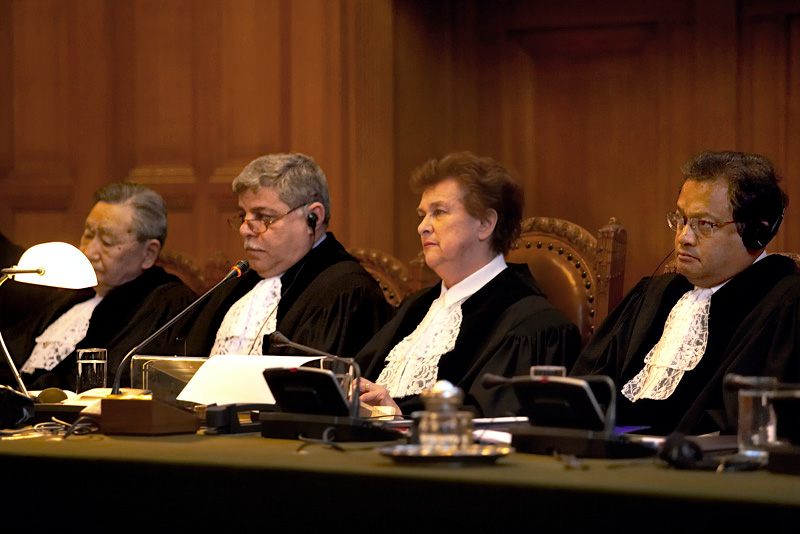
Political Arena in Turmoil:
- Partisan Divide Widens: As expected, the decision has ignited the partisan divide. Democrats largely view it as a necessary safeguard against potential threats to democracy, while Republicans denounce it as a politically motivated attack on Trump. This further amplifies the already polarized political climate.
- Uncertainty for Voters: The ruling injects confusion and uncertainty into the minds of voters. With unclear legal hurdles and the possibility of further appeals, the 2024 election cycle takes on a more volatile and unpredictable character.
A Chorus of Responses:
- Legal Experts Divided: Legal scholars offer diverse interpretations of the court’s decision. Some applaud it as a timely application of the Fourteenth Amendment, while others raise concerns about its precedent-setting nature and potential chilling effect on free speech.
- Political Reactions Predictable: Democrats applaud the court’s action, emphasizing the importance of accountability for actions that threaten democracy. Republicans, on the other hand, vehemently criticize the ruling, framing it as an undemocratic attempt to disenfranchise voters.
The Looming Appeal:
- Supreme Court Showdown: The Colorado Supreme Court’s decision is likely to face multiple appeals, culminating in a potential showdown before the U.S. Supreme Court. The nation’s highest court will ultimately decide whether to uphold or overturn the ruling, with implications for both Trump’s candidacy and the interpretation of the Fourteenth Amendment.
- Uncertain Timeline: The legal battle could play out for months, creating prolonged suspense and potentially disrupting the campaign season. The fate of the 2024 election might ultimately hinge on the Supreme Court’s final verdict.
The Colorado Supreme Court’s ruling has unleashed a chain reaction of consequences, impacting Trump’s candidacy, the political landscape, and the trajectory of the 2024 election. As legal challenges proceed and political reactions continue to unfold, one thing is certain: the ripples of this landmark decision will be felt for months, if not years, to come.
Key Points to Consider: Navigating the Crossroads of Law and Politics
The Colorado Supreme Court’s decision against Trump raises critical questions that go beyond the immediate political drama. These questions invite us to grapple with fundamental principles of democracy, free speech, and constitutional interpretation, demanding careful consideration before forming lasting judgments.
Uncharted Territory: The Fourteenth Amendment’s Unforeseen Application:
- This verdict marks the first time in American history that Section 3 of the Fourteenth Amendment has been used to disqualify a presidential candidate. This unprecedented application raises questions about the clause’s reach and potential future interpretations. Can it be invoked against other candidates whose actions, though controversial, may not meet the same “incitement of insurrection” standard? How will courts balance potential future abuses with upholding the spirit of the provision?
Free Speech vs. Inciting Insurrection: A Delicate Balancing Act:
- The ruling reignites the eternal debate over free speech and its limitations. While protecting free speech remains sacrosanct in a democracy, can certain forms of political rhetoric, especially those bordering on incitement of violence, be rightfully curtailed to protect democratic institutions? Where do we draw the line between robust political discourse and speech that threatens the nation’s stability?
Upholding the Constitution vs. Respecting the Democratic Process:
- The court’s decision rests on the interpretation of the Constitution’s safeguard against insurrection. However, it also raises concerns about potential infringements on the democratic process. Should a judicial body hold the power to disqualify a candidate endorsed by voters in primary elections? Does this ruling set a dangerous precedent for judicial interference in the democratic will of the people?
Balancing these competing considerations necessitates thoughtful reflection and engaged dialogue. Can we uphold the spirit of both free speech and constitutional safeguards against insurrection? Can we ensure a robust democratic process while addressing potential threats to its foundational principles? These intricate questions lie at the heart of the Colorado Supreme Court’s decision, demanding open minds and responsible discourse as we navigate this unprecedented historical moment.
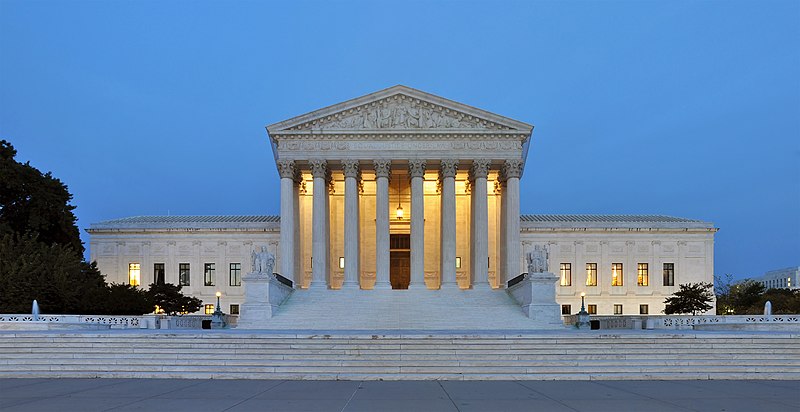
Conclusion:
The Colorado Supreme Court’s December 19th ruling against Donald Trump stands as a landmark decision, both historically and politically. It marks the first time a court has disqualified a presidential candidate based on the Fourteenth Amendment’s “insurrection clause,” injecting uncertainty into the 2024 election and sparking a legal and political firestorm.
Key Points Revisited:
- Unprecedented Disqualification: This ruling stands as a historic first, potentially setting a precedent for future interpretations of the Fourteenth Amendment and its application to presidential candidates.
- Intricacies of Interpretation: The court’s interpretation of “engaged in insurrection” and its application to Trump’s actions on January 6th lie at the heart of the decision, triggering ongoing debate and legal challenges.
- Balancing Concerns: The ruling necessitates a delicate balancing act between upholding democratic principles, safeguarding the Constitution, and protecting free speech. These competing considerations will shape the discourse and potentially future legal battles.
Ramifications and Uncertainty:
- Trump’s Candidacy in Limbo: For now, Trump is barred from the Colorado primary ballot, casting a shadow over his campaign and raising questions about his eligibility in other states.
- Legal Battles Ahead: The ruling will likely face multiple appeals, potentially culminating in a showdown before the U.S. Supreme Court. The Supreme Court’s final verdict will hold immense sway over the fate of Trump’s candidacy and the broader interpretation of the Fourteenth Amendment.
- Political Landscape Redefined: Regardless of the final outcome, the decision has already altered the political landscape. It has deepened partisan divisions, generated uncertainty among voters, and ignited passionate reactions from both sides of the political spectrum.
The Colorado Supreme Court’s decision is not an end, but a turning point. The legal battle rages on, the political ripples continue to spread, and the ultimate implications for the 2024 election remain shrouded in uncertainty. As this complex and historic saga unfolds, we are left to grapple with the weighty questions it raises about free speech, democracy, and the very foundations of our republic.


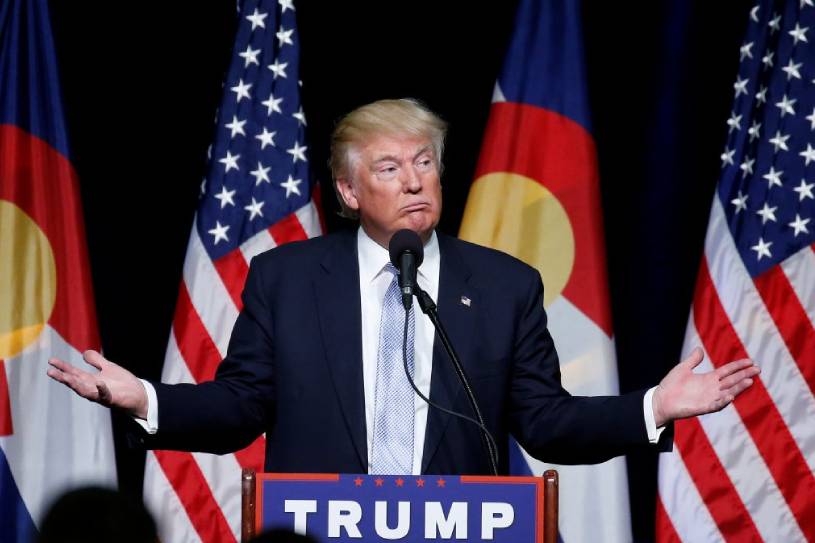


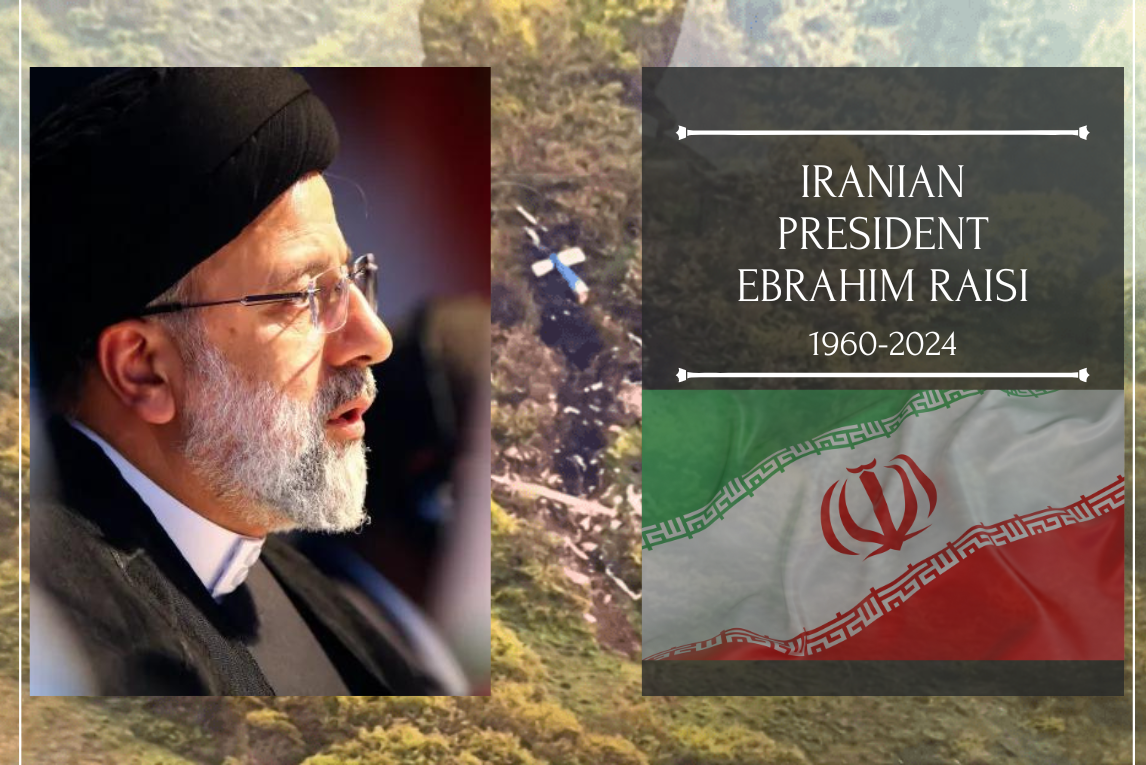




2 Responses
I like this website it’s a master piece! Glad
I found this ohttps://69v.topn google.Blog range